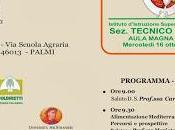 Here's an
old proverb but - I would say - absolutely present!
As you make your bed, so you must lie in it = Chi
è causa del suo mal pianga se stesso.
Briefly if you have damaged yourself with some wrong choices
or actions you only have to blame yourself. Think about it! How many times
actually one of our wrong choices, dictated by the haste , by the impulsiveness
or by the enthusiasm inevitably leads us to the bad consequences!
Now, against
who you get mad? Against the world? Against the society? No, no you need to do a self-analysis and you need occasionally
to do a bit of soul searching (which is a good practice for the egocentrics). I do not think to feel guilty could be the right attitude,
rather you can analyze what was wrong
and how you can do to avoid the mistake next time.
The proverb
was already known by the Latins: "Here sibi mala curat lugeat
(cry) semetipsum."
The similar
concept was expressed by Dante in Canto XXIX (the circle of the fraudulents):
Here's an
old proverb but - I would say - absolutely present!
As you make your bed, so you must lie in it = Chi
è causa del suo mal pianga se stesso.
Briefly if you have damaged yourself with some wrong choices
or actions you only have to blame yourself. Think about it! How many times
actually one of our wrong choices, dictated by the haste , by the impulsiveness
or by the enthusiasm inevitably leads us to the bad consequences!
Now, against
who you get mad? Against the world? Against the society? No, no you need to do a self-analysis and you need occasionally
to do a bit of soul searching (which is a good practice for the egocentrics). I do not think to feel guilty could be the right attitude,
rather you can analyze what was wrong
and how you can do to avoid the mistake next time.
The proverb
was already known by the Latins: "Here sibi mala curat lugeat
(cry) semetipsum."
The similar
concept was expressed by Dante in Canto XXIX (the circle of the fraudulents):
dov'io tenea or li occhi sì a posta, credo ch'un spirto del mio sangue pianga la colpa che là giù cotanto costa paraphrasing : where I was gazing, I believe that the spirit of a my ancient relative cried while he was expiating the sin of which he was guilty. In my opinion the proverb is present hidden in all the Inferno Obviously, the proverb would be acceptable if you admit your mistake but you will surely bother if someone will tell you this proverb, because it is a nice way of saying "I told you so" . In some cases perhaps it is better to shut up.
Ecco un proverbio antico ma direi assolutamente valido anche oggi! Chi è causa del suo mal pianga se stesso.In parola povere se si è causa di danni verso se stessi per scelte o azioni sbagliate dobbiamo solo che rimproverare noi stessi. Pensateci bene. Quante volte effettivamente una nostra scelta sbagliata, dettata dalla fretta o dall’impulsività oppure dall’entusiasmo ci porta inevitabilmente a delle conseguenze che si ritorcono su noi stessi!A quel punto con chi volete prendervela? Con il mondo? Con la società? No no bisogna fare un’autoanalisi e ogni tanto mettersi in discussione ( il che non fa male soprattutto a chi è dotato di una forte dose di egocentrismo). Non penso che colpevolizzarsi sia l’atteggiamento giusto, piuttosto analizzare dove e come abbiamo sbagliato per poter trarne il maggior insegnamento possibile e non ripetere più l’errore. Il proverbio era già conosciuto dai latini:”Qui sibi mala curat lugeat (piangerà) semetipsum”. Concetto simile lo esprimeva anche Dante Alighieri che nel canto XXIX ( girone dei fraudolenti) affermava dov'io tenea or li occhi sì a posta, credo ch'un spirto del mio sangue pianga la colpa che là giù cotanto costa parafrasi: dove io poco fa avevo lo sguardo fisso, credo che lo spirito di un mio parente pianga mentre sconta il peccato di cui si è macchiato. A mio avviso in tutta la Divina commedia nell’Inferno il proverbio è presente tra le righe
Ovviamente il proverbio sarebbe accettabile se auto dichiarato ma sicuramente ci darà molto fastidio se a dircelo è qualcuno diverso da noi stessi dopo che abbiamo fatto un pasticcio perché è un modo carino di dire: “ te l’avevo detto” e in certi casi forse è meglio tacere.






